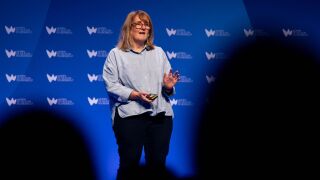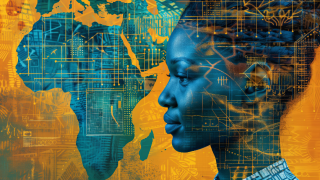How did this collaboration with Coca-Cola and Tigo Rwanda come about?
For Ericsson, it all started with a conversation between our CEOs when they met at the World Economic Forum. One idea that was of immediate interest to both companies was collaboration around Ekocenter, Coca-Cola’s initiative to empower female entrepreneurs and bring safe water and power to millions of people. Coca-Cola brought Solarkiosk into the project to provide the power.
Both companies immediately recognised how powerful it would be to also provide internet access via mobile broadband. So we decided to start a pilot in Rwanda, an African country known for its advanced approach to connectivity.
For Ericsson, it was natural to look for one of our customers to partner with, and mobile operator Tigo was interested to join the initiative. The deployment is ongoing right now.
How much did Ericsson invest into this project?
As with our other Technology for Good projects, Ericsson’s contribution is our technology and the expertise of our employees. We don’t make financial donations. In the case of Ekocenter, we will initially deploy our managed rural coverage (MRC) solution to provide mobile internet services to the Ekocenter in rural Rwanda.
Our TV Anywhere service will enable access to content like news and entertainment as well as education and healthcare content, enabling the kiosk to become a connected hub.
We will also provide Ekocenter with our m-commerce solution, which will enable the women running the kiosks to receive payments for goods purchased by members of the community using their mobile wallets.
What sustainable business opportunities does this project present for Ericsson?
The objective of this pilot is to explore a cross sector partnership between Coca-Cola and Ericsson in order to learn and validate a sustainability-based business model from an end-to-end perspective.
The model covers societal impacts, scalability of solutions and the business potential, in other words, shared value for the companies as well as the community and local beneficiaries. We aim to provide access to clean water and other services that can improve the socioeconomic conditions of the communities, while at the same time developing a viable business model that can be commercially sustainable over time.
Such a result means that we will ultimately get even greater impact and scale, and a sustainability initiative that is easy to replicate in other countries.
How important is it for technology companies such as Ericsson to be involved in social enterprises?
Sustainability and corporate responsibility is anchored in the Ericsson group business strategy. By 2020, 90% of the world’s population will be covered by mobile broadband networks.
This scale brings an unprecedented opportunity to address global sustainable development challenges. We have been a leading advocate of Technology for Good for a number of years, and have been working in public-private partnerships like the Ekocenter project because we believe they can create the greatest positive impact in society.
Coca-Cola’s approach to supporting women entrepreneurs was in line with our ambition to be a responsible and relevant driver of positive change in the Networked Society, (a term used to describe a future ecosystem in which widespread internet connectivity drives change for communities).
How can mobile broadband bring empowerment to a society?
I have been working with GSMA’s Mobile for Development foundation for almost 20 years. I have seen first-hand the impact on poverty in places as remote as the Amazon to rural African villages. There are many supporting facts that point to the importance of educating and engaging women and girls. We know that educated girls and women are healthier, have the skills to make choices over their own future and can lift themselves, their communities and their countries out of poverty.
We also know that women tend to invest significantly more of their disposable income back into their families, while also having a positive impact on development. For these reasons we were attracted to the Ekocenter concept and the opportunity to enable the connectivity element.
Is Ericsson looking to expand the initiative in neighbouring countries?
Once we have gained experience from the pilot phase, we aim to expand the partnership to other countries in Africa, Asia and Latin-America. We launched the initiative at Mobile World Congress, and have since received great interest from customers and governments in the concept.
We aim to work with our mobile operators, wherever possible, and with customers in 180 markets around the world, we hope to expand the partnership with them as the Ekocenter programme develops.




